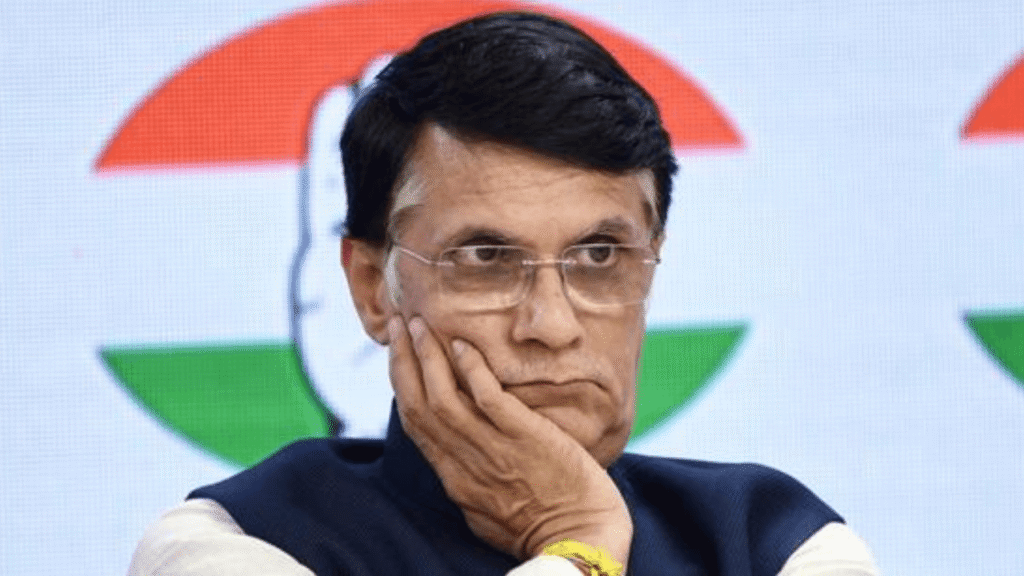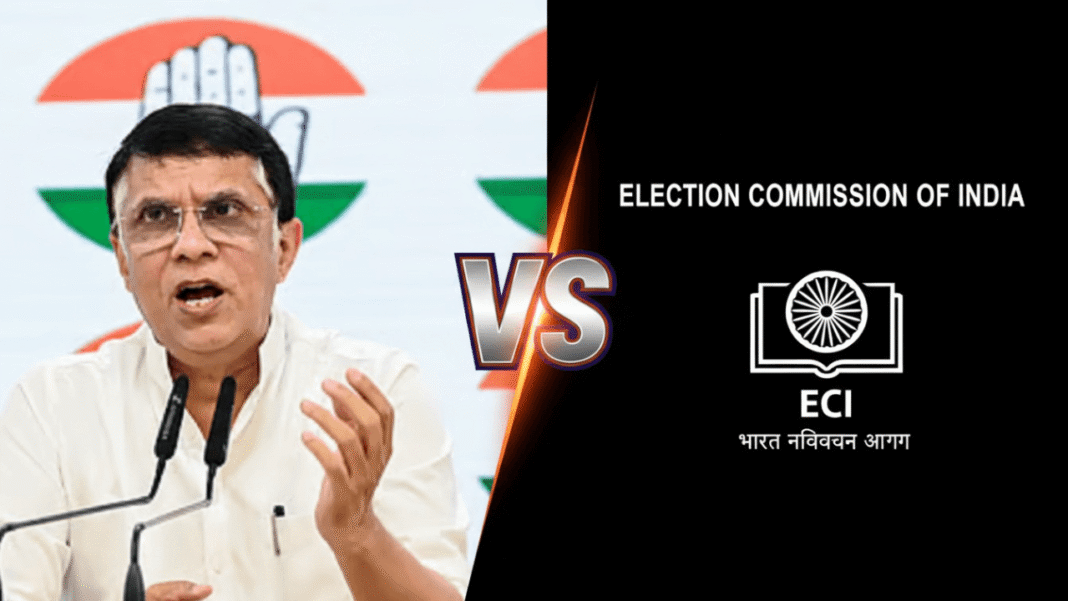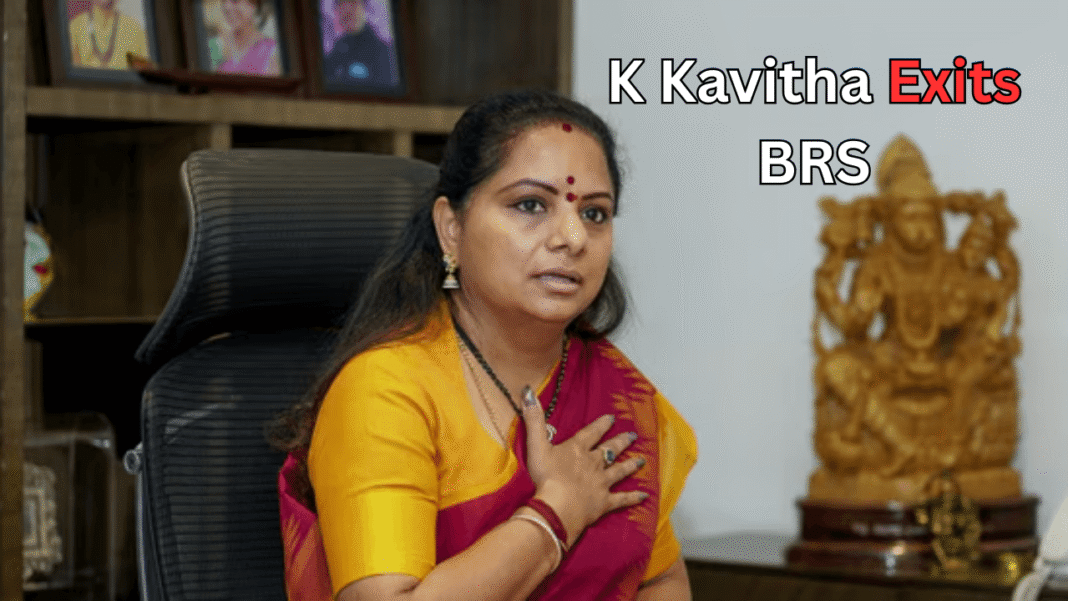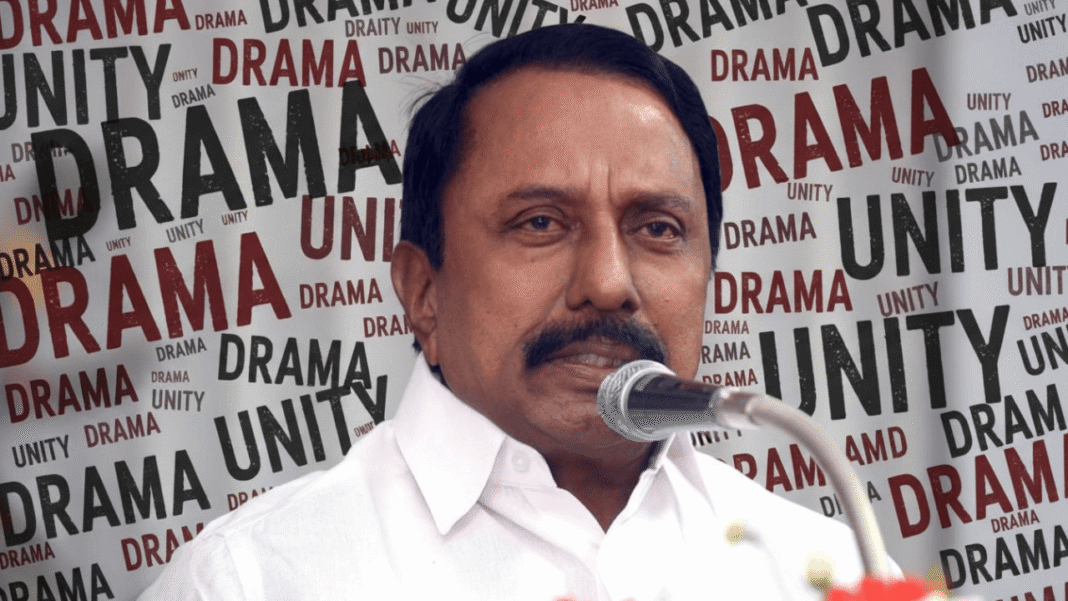When politics and paperwork collide, the result is rarely quiet. That’s exactly what’s happening right now with senior Congress spokesperson Pawan Khera. The Election Commission of India (EC) has sent him a formal notice after allegations surfaced that he’s listed as a voter in two different assembly constituencies in Delhi. The BJP wasted no time pointing it out, and the matter has quickly turned into another flashpoint in India’s political drama.
The Allegation: Two Constituencies, One Name
According to the District Election Office of New Delhi, Pawan Khera’s name appears not once, but twice — in both the Jangpura and New Delhi assembly segments. Now, under India’s election law, specifically Section 17 and Section 18 of the Representation of the People Act, 1950, that’s a big no-no. The law makes it clear: one person, one constituency. No duplicates allowed.
The Election Commission’s Warning
The letter from the EC carried a tone of firm caution. “As you may be aware, being registered in more than one constituency is a penal offence under the Representation of the People Act, 1950. You are therefore directed to show cause as to why action should not be taken against you.”
That’s bureaucratic language for: explain yourself, or face the consequences. If Khera fails to respond in time, the EC has made it clear it won’t hesitate to act.
Pawan Khera’s Defense: Blame the System

Khera hasn’t stayed silent. Speaking to ANI, he turned the heat back on the Election Commission, claiming the error lies not with him but with the system.
“I shifted out of the New Delhi constituency in 2016,” he said, explaining that he followed the necessary procedure to have his name deleted from there. “I would like to know from the Election Commission who is being made to cast their vote from the New Delhi constituency in my name. I want the CCTV footage.”
He didn’t stop there. Khera doubled down, insisting Congress has been raising concerns about the EC’s functioning for years. “This list is available to BJP leaders as well as the EC. Congress keeps asking for the list but never gets it,” he added.
The BJP’s Counterattack
Naturally, the BJP wasn’t going to let this opportunity pass. Amit Malviya, the BJP’s social media in-charge, took to X (formerly Twitter) and went on the offensive.
In his post, Malviya wrote: “Rahul Gandhi screamed ‘vote chori’ from the rooftops… it has now emerged that Pawan Khera — who never misses a chance to flaunt his proximity to the Gandhis — holds two active EPIC numbers.”
He further pushed the EC to dig deeper, demanding clarity on whether Khera had voted multiple times. “It is now for the Election Commission to investigate how Pawan Khera holds two active EPIC numbers, and whether he voted multiple times — a clear violation of electoral laws.”
What the Law Says About Dual Voter IDs
Let’s break it down. India’s election system is strict about duplicate registrations. You can’t hold two active voter IDs at the same time — it undermines the principle of “one person, one vote.” If proven guilty, the penalties are more than symbolic: jail time up to a year, a fine, or both.
The Representation of the People Act is designed to maintain the integrity of elections, and duplicate entries are treated as a direct threat to that. Which is why the EC is taking this case so seriously.
Congress’s Larger Narrative
For the Congress party, this isn’t just about Khera. It fits into a broader narrative they’ve been pushing: questioning the fairness and transparency of the Election Commission. Khera’s defense wasn’t just personal; it echoed Congress’s long-standing complaint that the EC is failing in its duties while BJP leaders somehow gain access to electoral rolls.
By pointing fingers at the system, Khera aligned his personal defense with his party’s larger fight.
What Happens Next?
The clock is ticking. Khera must respond to the notice by the morning of September 8. Once his explanation is in — or if he misses the deadline — the EC will decide the next steps. That could mean anything from accepting his explanation to pursuing penalties under the law.
And while this may be a bureaucratic matter on paper, politically it’s already a firestorm. The BJP has seized the opportunity to question Congress’s credibility, while Congress is using the incident to highlight what it calls institutional failures in India’s democratic setup.
A Storm Before the Elections
With elections always on the horizon in India, even a seemingly technical issue like dual voter registration can snowball into a high-stakes political battle. For Pawan Khera, the notice isn’t just about paperwork — it’s about perception.
Will the EC see this as a genuine clerical oversight, or as a violation of electoral law? And more importantly, how will voters see it when rival parties turn it into another talking point in the larger war of narratives?
One thing is certain: in Indian politics, even a voter list entry can spark a storm that goes far beyond the ballot box.



